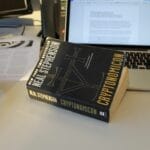Picture this: a missionary in the 1940s, far from home, trying to spread their faith. Then, World War II throws a wrench into everything. Suddenly, their work isn’t just about preaching; it’s about survival, navigating wartime dangers, and sometimes, even getting secretly involved in intelligence work. This story explores the lives of these missionaries – the good, the bad, and the truly unexpected. We’ll uncover their struggles with tough choices, how the war changed their jobs, and the surprising ways their faith and the world’s politics intertwined. It’s a hidden chapter of history, full of faith, bravery, and moments where the lines between religion and global strategy became incredibly murky. Get ready for some amazing, untold stories. For more on post-war missionary work, see [this resource](https://www.lolaapp.com/american-missionaries-in-post-war-japan).
Life as a Missionary in the 1940s: Wartime Challenges
The 1940s were a tumultuous time, and life for missionaries was completely turned on its head. Imagine their world: established missions destroyed, daily routines shattered, and the very reason for their work questioned amid growing international tensions. World War II brought chaos, forcing many missionaries to face internment, imprisonment, or perilous escapes. The big questions haunted them: Could they continue their work amidst such upheaval? Would their faith survive such immense hardship?
Hidden Roles: Missionaries and the War Effort Espionage
The war cast a long shadow, changing even the roles of some missionaries in unexpected ways. Some became entangled in espionage, surprisingly working alongside intelligence services. These individuals, often fluent in local languages and already trusted within their communities, became invaluable assets during the global conflict. But this presented a real moral dilemma: were their actions a betrayal of their spiritual calling, and did helping with intelligence work contradict their vow of peace? This duality remains a compelling question. Some argue that their actions saved lives and aided resistance movements, while others see such involvement as a compromise of their faith. Consider William Alfred Eddy, a former missionary, who leveraged his linguistic abilities and connections in North Africa to assist the Office of Strategic Services (OSS) during Operation Torch. Eddy’s story highlights the complex intersection of faith and wartime intelligence.
Balancing Faith: Action, Inner Conflict, and Emotional Toll
Picture the emotional strain. These missionaries risked their lives in secret operations while simultaneously striving to spread their faith. How did they reconcile their beliefs with the brutal realities of war? Russell Deibler, a missionary in Papua New Guinea, faced this dilemma when he and his wife, Darlene, were captured by the Japanese Imperial Army. Despite facing immense hardship and separation, Deibler continued to minister to his fellow prisoners, even leading a Christmas service that bolstered their wavering faith. Could they honestly serve both God and country without compromising their integrity? The conflict created a harrowing spiritual and moral struggle, one that many grappled with throughout their lives; how did their unwavering beliefs sustain them through such trials? Their experiences were intensely personal, and their inner conflicts make their stories all the more human and relatable. The answers weren’t simple or clear, and the weight of these decisions very likely stayed with them for years.
Post-War World: Challenges and Opportunities for Missionaries
The war’s end wasn’t a simple return to normal. While the fighting stopped, the challenges for missionaries certainly did not; the landscape of their work had been undeniably altered. The post-war world offered both gigantic problems and extraordinary chances. Some missionaries dedicated themselves to rebuilding shattered communities, offering vital aid and relief. Others spent years reflecting on their wartime experiences, wrestling with the consequences of their choices. The Program of Advance, launched in 1948, exemplifies this post-war energy, leading to substantial increases in funds, personnel, and new fields of service. The post-war period was also emotionally complex; many missionaries struggled with the moral ambiguities of their past actions. The lasting impact of their wartime decisions is still being studied today.
Enduring Legacy: Faith, Sacrifice, Moral Dilemmas
The experiences of missionaries during World War II left an enduring mark on missionary history. Their stories are a complex mix of faith, self-sacrifice, and moral ambiguity. These narratives, often buried in the past, need to be told. They remind us that even in the darkest moments, the human spirit—and our search for faith—persists. Their courage and resilience in the face of adversity are both inspiring and humbling. We may never fully understand the choices they made, but their legacy challenges us to reflect on faith, service, and the intricate moral dilemmas of war.
Regional Experiences: Varied Hardships and Adaptations
The effects of WWII differed greatly depending on location. Let’s consider some regional differences, like how the Japanese occupation in Asia disrupted communications, leading to widespread poverty.
| Region | Significant Challenges | Opportunities and Adaptations |
|---|---|---|
| Asia (e.g., China) | Japanese occupation, disrupted communication, widespread poverty, loss of life | Post-war aid and rebuilding efforts, adapting strategies to a changed social landscape. For instance, missionaries focused on providing essential resources and re-establishing community connections. |
| Europe (e.g., France) | Nazi occupation, persecution of religious groups, widespread destruction | Rebuilding efforts, offering spiritual comfort and guidance, helping reestablish communities. Missionaries played a vital role in providing emotional support and helping to rebuild infrastructure. |
| Pacific Islands (e.g., Papua New Guinea) | Internment camps, separation from families, limited resources, brutal treatment by captors. | Maintaining faith, providing support to fellow prisoners, adapting to harsh conditions. Darlene Deibler Rose’s experience highlights the extraordinary resilience required to survive these camps. |
| Africa | Limited direct conflict, but global supply shortages | Increased focus on healthcare and development, finding innovative ways to serve isolated communities, responding to the long term consequences of war on the global south. Missionaries expanded their healthcare initiatives to address the needs of underserved populations. |
These variations underscore the diverse hardships and opportunities that shaped missionary life in the 1940s. These stories highlight the resilience and adaptability of these individuals, demonstrating how they found ways to continue their service during extraordinarily challenging times. Further study may reveal even more captivating stories, revealing the full scope of WWII’s impact on missionary efforts. There’s much still to learn about this fascinating and nuanced part of history.
Moral Dilemmas and Espionage: Did WWII Espionage Impact Spiritual Lives?
Key Takeaways:
- The OSS (Office of Strategic Services) secretly recruited missionaries due to their language skills and existing networks.
- These “holy spies” faced profound moral dilemmas, balancing faith with espionage’s demands.
- Their actions often involved significant personal risks, both physical and spiritual.
- Secrecy surrounding these operations created lasting impacts on the missionaries and the organizations involved.
- The events raise important questions about the intersection of faith, national security, and ethics.
Faith and Espionage: A Divided Loyalty in Wartime
Imagine being a missionary, dedicated to spreading peace and goodwill. Then, suddenly, you’re asked to become a spy, operating in enemy territory. This was the reality for many religious workers during World War II. The Office of Strategic Services (OSS) — the CIA’s predecessor — actively recruited these individuals, leveraging their skills and existing relationships in foreign lands. But what was the cost? How did WWII espionage impact the spiritual lives of missionary spies? The answer is complex and deeply personal. Some, like William Alfred Eddy, felt conflicted, questioning whether their actions aligned with their religious beliefs. Eddy, who orchestrated assassination plots while observing Lent, exemplifies this inner turmoil.
Allure and Agony: Recruitment of Holy Spies
The OSS needed people with on-the-ground knowledge and trust within communities. Missionaries fit the bill perfectly. Their linguistic skills, cultural understanding, and existing networks provided unique advantages. Yet, this advantageous position came with a steep price. Many found themselves engaging in activities that directly contradicted their religious beliefs.
Imagine the internal conflict: the quiet prayer juxtaposed with the clandestine meeting, the sermon on peace followed by a mission requiring deception. The dissonance must have been excruciating. Did their faith sustain them, or did the moral compromises erode their spirituality? These are critical questions that deserve deeper exploration. As Matthew Avery Sutton notes in Double Crossed: The Missionaries Who Spied for the United States During the Second World War, these individuals wrestled with whether they could justify their actions before God.
Conscience and Conflict: Psychological and Spiritual Toll
Historical accounts reveal the intense psychological toll. The constant fear of discovery, the moral ambiguity of their actions, and the potential for violence — all took their toll. Many struggled with guilt and self-doubt. Their spiritual journeys became marked by periods of intense introspection and questioning. Some found solace in their faith, viewing their actions as a form of service, a necessary evil for the greater good. Others, however, suffered profoundly, wrestling with the conflict between their dedication to God and the harsh realities of espionage. Darlene Deibler Rose’s imprisonment and interrogation by the Japanese Kempeitai exemplify the extreme pressure these individuals faced.
Secrecy and Silence: Burden of Clandestine Operations
The secrecy surrounding their work added further layers of complexity. These missionaries couldn’t confide in their colleagues or even their families, carrying a heavy burden of silence. This isolation, coupled with the inherent dangers of espionage, profoundly shaped their spiritual experiences; how did they manage the burden of such sensitive knowledge? The silence itself became a significant spiritual burden.
Ethical Considerations: A Legacy of Questions
The story of these “holy spies
- Uncover Verna Garver and Pentecostalism: Untold Life Story - July 21, 2025
- Unveiling Verna Garver: A Life Beyond the Spotlight - July 21, 2025
- Secret Agents of God: 1940s Missionary Lives, WWII Impact - July 21, 2025













